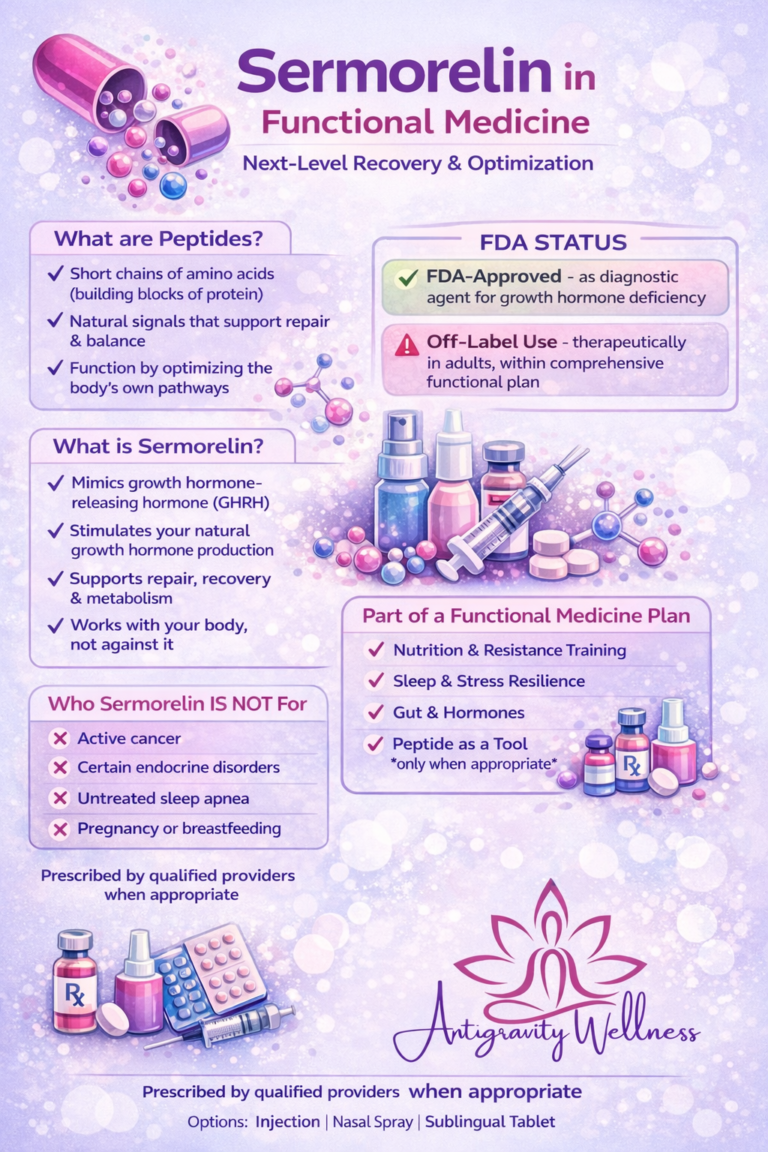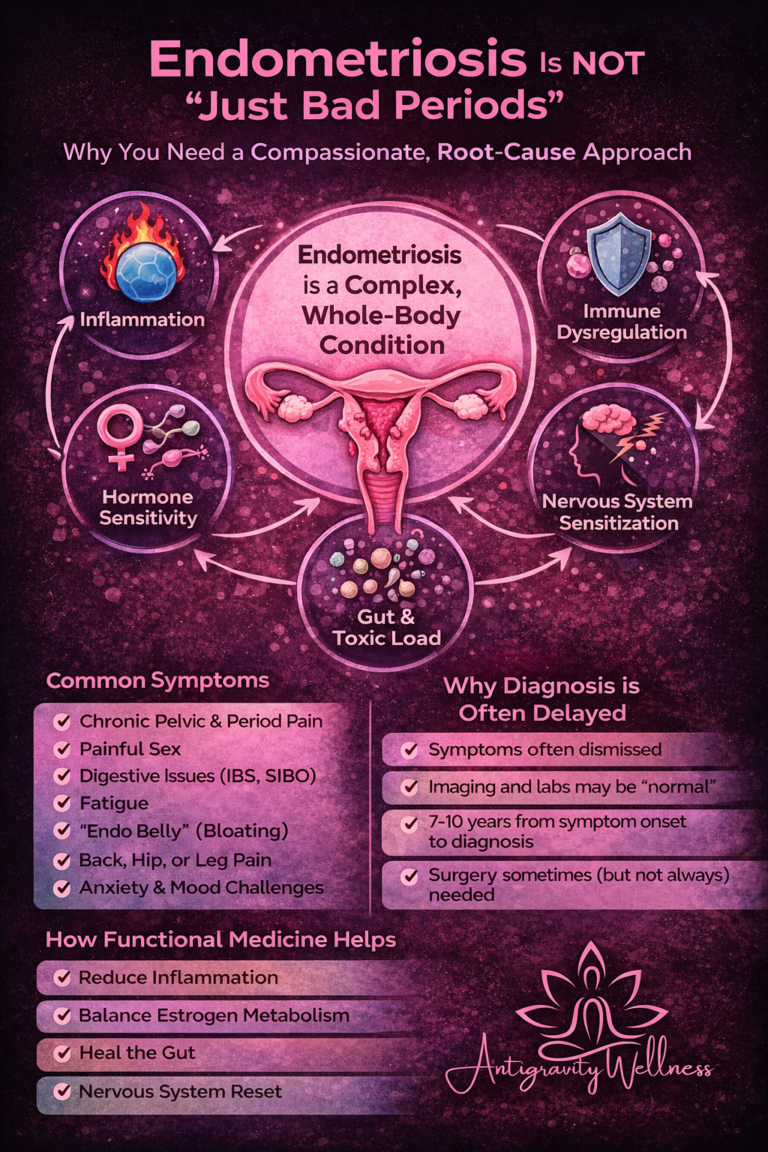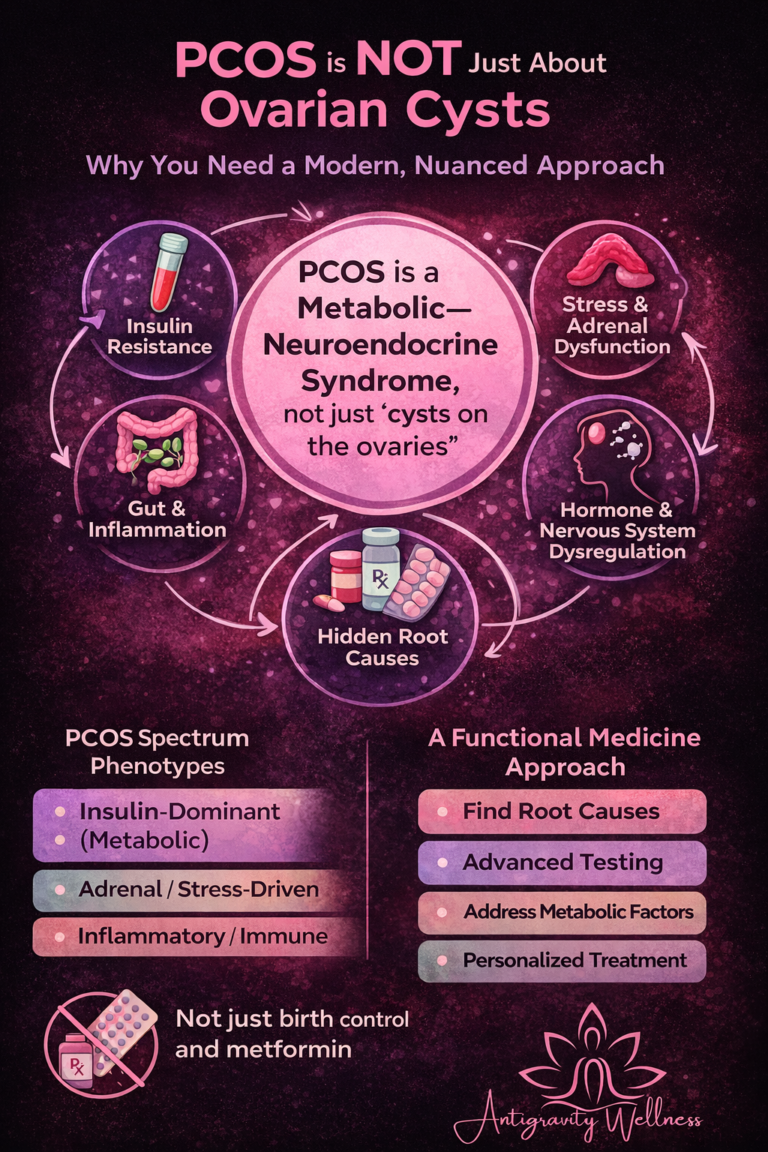
🌸 The Story: When the Words Just Wouldn’t Come
A few years ago, I was standing in my kitchen trying to think of a simple word — “spatula.” I could picture it. I could describe it. But the word? Gone.
I laughed it off at first. “Must be stress,” I told myself. But the truth was, it kept happening. Names, passwords, even what I walked into a room to do — all slipping away more often.
It wasn’t early dementia. It wasn’t burnout. It was perimenopause.
And the culprit? A hormone that most of us never realize affects our brains as much as our bodies: estrogen.
🔬 How Estrogen Shapes Brain Health
We often think of estrogen as the “reproductive” hormone, but it’s also a neuroprotective powerhouse.
Here’s what it does inside your brain:
- Boosts blood flow and oxygen to neurons
- Regulates neurotransmitters like serotonin, dopamine, and acetylcholine — the ones that govern mood, motivation, and memory
- Powers brain metabolism, helping your neurons use glucose (their favorite fuel)
- Stimulates BDNF, or Brain-Derived Neurotrophic Factor — a kind of brain fertilizer that helps your neurons grow new connections
When estrogen fluctuates during perimenopause, these processes become less efficient. You might notice:
- Foggy thinking
- Trouble recalling names or words
- Feeling “scatterbrained” or unfocused
- Mood swings or irritability
- Difficulty concentrating or multitasking
The medical term for this isn’t “menopause brain.” It’s a temporary neurological shift — one that can be improved with the right strategies.
🧩 A Case Study: “I Thought I Was Losing My Mind”
Let’s call her Laura.
At 46, Laura was juggling a demanding career, aging parents, and teenage kids. She came to me saying, “My brain just doesn’t work like it used to. I forget things constantly. My job depends on focus — and I feel like I’m failing.”
Her labs showed fluctuating estrogen and progesterone, mild thyroid changes, and elevated cortisol from chronic stress.
We built a comprehensive plan that included:
- Targeted nutrition and protein optimization
- Strength training and short interval movement
- Magnesium and omega-3 support
- Sleep restoration techniques
- Guided stress-reduction using the physiologic sigh
- And, after careful evaluation, gentle hormone replacement
Within two months, her “fog” lifted. She said, “It’s like someone turned the lights back on in my brain.”
Laura’s story isn’t rare — it’s the norm when we address the root cause, not just the symptoms.
💡 Why Antigravity Wellness Is Different
At Antigravity Wellness, we don’t dismiss women’s symptoms or tell you “this is just part of getting older.”
We specialize in functional, root-cause care — blending evidence-based hormone optimization, advanced lab testing, and lifestyle medicine to support your whole system: brain, body, and mood.
Our approach is designed for women in their 30s, 40s, and 50s navigating perimenopause or menopause who want to reclaim:
✨ Focus and clarity
✨ Stable mood and motivation
✨ Restful sleep
✨ Energy that lasts all day
We don’t offer cookie-cutter protocols. Every woman’s journey is unique — and so is her care plan.
🚀 How to Get Started
If you’re tired of feeling foggy, forgetful, or “off,” let’s find out what’s really going on.
👉 Take our Readiness Questionnaire to see if services with Antigravity Wellness could be a good fit for you.
Once you complete the questionnaire, our team will review your responses and reach out with your personalized next steps — including testing options, programs, or coaching designed around your goals.
Your brain — and your hormones — deserve care that goes deeper than “it’s just stress.”
📚 References
- Brinton, R. D. (2008). Estrogen regulation of glucose metabolism and mitochondrial function: therapeutic implications for prevention of Alzheimer’s disease. Advanced Drug Delivery Reviews, 60(13–14), 1504–1511. https://pubmed.ncbi.nlm.nih.gov/18647624/
- Sherwin, B. B. (2012). Estrogen and cognitive functioning in women. Endocrine Reviews, 33(4), 615–663. https://pubmed.ncbi.nlm.nih.gov/12700177/
- Mosconi, L., et al. (2018). Menopause impacts human brain structure, connectivity, energy metabolism, and amyloid-β deposition. Scientific Reports, 8(1), 7083. https://pubmed.ncbi.nlm.nih.gov/34108509/
- Henderson, V. W. (2016). Cognitive changes after menopause: influence of estrogen. Clinical Obstetrics and Gynecology, 59(3), 454–466. https://pubmed.ncbi.nlm.nih.gov/18677155/
- Jacobs, E., & D’Esposito, M. (2011). Estrogen shapes dopamine-dependent cognitive processes: implications for women’s health. Journal of Neuroscience, 31(14), 5286–5293. https://pubmed.ncbi.nlm.nih.gov/21471363/
⚕️ Medical Disclaimer
This blog is for educational purposes only and should not be used to diagnose, treat, or replace individualized medical advice. Always consult with a qualified healthcare provider before beginning or modifying any treatment, supplement, or hormone regimen.
© 2025 Antigravity Wellness. All rights reserved.




